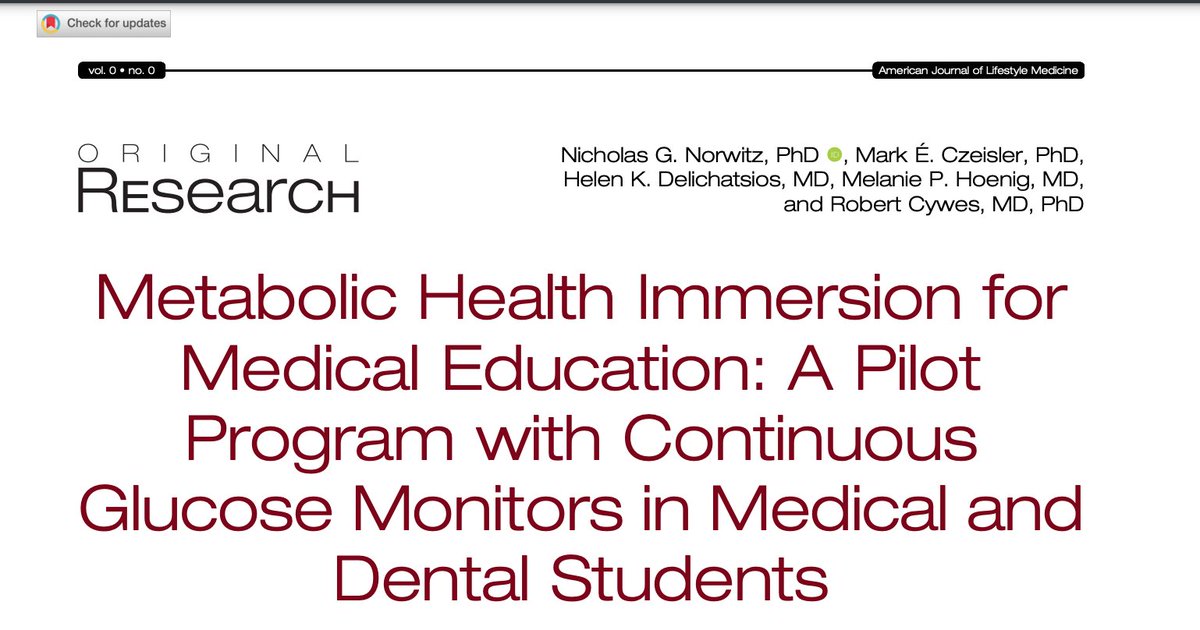
1/ This is true, but for those who are interested deserves some unpacking. Short thread… Here we go…
Yes, insulin resistance is a stronger risk marker than elevated LDL-C. This can be quantified as lipoprotein insulin resistance (LP-IR).
Yes, insulin resistance is a stronger risk marker than elevated LDL-C. This can be quantified as lipoprotein insulin resistance (LP-IR).
https://twitter.com/ifixhearts/status/1573407485452500992
2/ in the largest prospective trial to date (WHS, median follow-up was 21.4 years. N=28 024 women aged >45 years). LP-IR had an adjusted hazards ratio of 6.4 for coronary disease, as compared to 4.3 for obesity 3.9 for smoking and only 1.3 for LDL-C.
jamanetwork.com/journals/jamac…
jamanetwork.com/journals/jamac…
3/ in other words, there was ~ 540% increase in coronary disease risk with insulin resistance but only ~30-40% for LDL-C. Furthermore, there was likely an interaction between terms as the association didn’t hold for large LDL but was driven by small LDL, which is associated w/ IR
4/ HOWEVER… IT’S important to distinguish between causative and non-causative risk markers/factors, and also the “actionability” of various markers. Taking LDL-C as a poor man’s proxy for LDLp/ApoB we can also say that ApoB particles are part of the causal pathway in ASCVD
5/ otherwise put, ApoB particles are NECESSARY (albeit no sufficient) for ASCVD to occur.
Thus, by keeping numbers low, one can reduce the development of plaques… all things being equal. This isn’t in debate; it's a fact.
But things continue to get more messy or 'nuanced'…
Thus, by keeping numbers low, one can reduce the development of plaques… all things being equal. This isn’t in debate; it's a fact.
But things continue to get more messy or 'nuanced'…
6/ Because all things are never equal in clinical medicine. If one could flip a magic switch and lower ApoB without any further consequences, IMHO, I'd go for it!
But to lower ApoB requires an intervention of sorts which carries different consequences for different persons...
But to lower ApoB requires an intervention of sorts which carries different consequences for different persons...
7/ For example, LDL lowering medications (ezetimibe, statins, PCSK9i) can effectively lower ApoB in many. But, like all drugs, they can have side effects. Are statins the snake poison SM makes them out to be? No, I don't think so. But are they, 100% benign? ...
8/ Well, it depends on who you are. There's certainly an individual response, and some people may additionally benefit from their anti-inflammatory properties, etc. However, others could have side effects, even if the serious side effects are, admittedly, rare.
9/ As some of you may know, I personally chose not to medicate for highly elevated LDL-C/ApoB, but that's NOT because I think LDL-C medications are across the board bad. I could easily argue they are a postive marvel of modern medicine, if prescribed to the right patients...
10/ My PERSONAL decision is a product of a careful consideration of MY reading of the lit, my metabolic and genetic profile/risk of other disease processes, family hx, functional testing (CCTA). Your considerations are different; thus, my decision doesn't generalize to you.
11/ And while this thread evidently is not "short" as a promised, I'd be remiss if I didn't hit upon the topic of #LMHR -- these are a unique group of individuals with carbohydrate-restriction induced elevations in LDL-C/APoB to het/homo FH levels with LDL-C 200-700+ mg/dL
12/ In #LMHR the dominant factor driving the elevated LDL-C/ApoB is possibly (my best guess) metabolic in nature and related to depletion of glycogen stores; and, thus, can be reversed with carbohydrates. I.e. instead of a drug, you could "medicate" with a sweet potato per day
13/ I bring up LMHR because they provide an interesting example of how different patient cases may require different management, to highlight how much we still DON'T know, and to emphasize that in different patients a given intervention comes with different costs...
14/ For example, if an LMHR has epilepsy treated with ketosis, that sweet potato may reduce ApoB at the expense of increase seizure frequency; however, in an LMHR using a KD recreationally, eating a sweet potato per day may lower ApoB with almost no down side.
15/ Wrapping up:
Yes, insulin resistance is a stronger risk marker for CVD than LDL-C
Also yes, LDL is a causative agent in CVD and lowering it reduces risk
Interventions required to lower ApoB, and their benefits, vary person to person
Ie No 2 patients are the same... 'duh'
Yes, insulin resistance is a stronger risk marker for CVD than LDL-C
Also yes, LDL is a causative agent in CVD and lowering it reduces risk
Interventions required to lower ApoB, and their benefits, vary person to person
Ie No 2 patients are the same... 'duh'
16/ Let me know what you think of this spew (please be respectful). Was it helpful?
Also, I will be having an editorial come out in a respected Lipid Journal, with a power-cast of co-authors in November on the topic of managing LDL-C on ketogenic diets. Stay tuned...
Also, I will be having an editorial come out in a respected Lipid Journal, with a power-cast of co-authors in November on the topic of managing LDL-C on ketogenic diets. Stay tuned...
17/ Nick says, “time for a short thread” … 16 tweets later…
• • •
Missing some Tweet in this thread? You can try to
force a refresh















